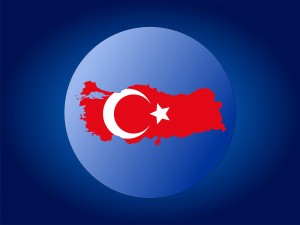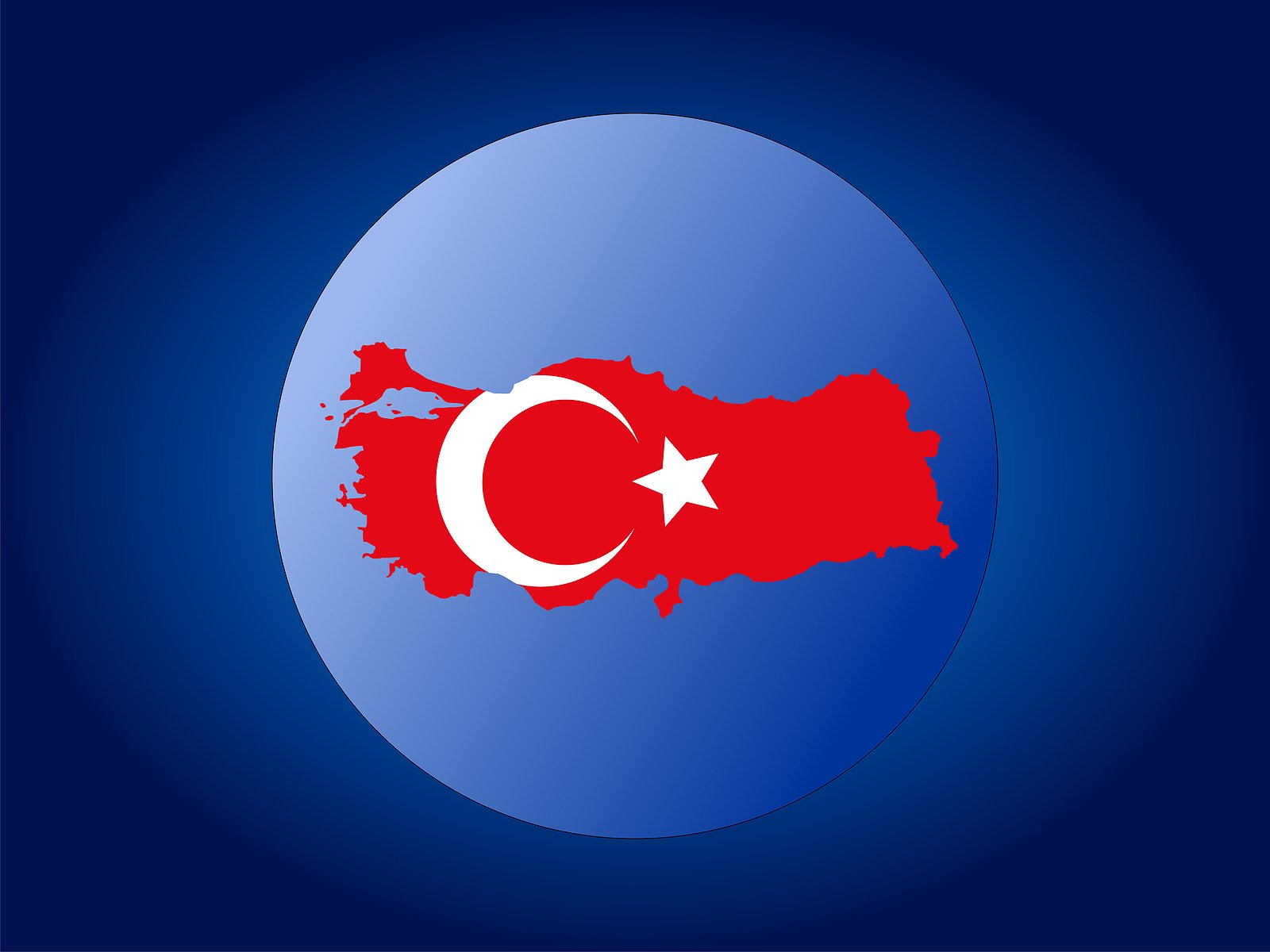10/14/2011 By Richard Weitz
Many of my questions in Turkey concerned that country’s ties with Russia. The Turkish officials we met considered their country’s relations with Russia to be their best ever.
They pointed to their extensive bilateral trade, the millions of Russian tourists who visit Turkey each year, and the strong harmony in Russian and Turkey security interests in the Balkans, Middle East, Afghanistan, and the Black Sea region. Although acknowledging some differences, they believe that Turkey and Russia have now developed a profoundly healthy relationship based on mutual respect.

Even during the first few years following the end of the Cold War and the demise of Soviet Union, Russian-Turkish ties remained troubled. The leaders of the new Russian Federation feared a strengthening of pan-Turkism among the Turkish peoples of Central Asia, with a corresponding decrease in Moscow’s influence in the region.
From the Turkish perspective, the Russian government’s initial reluctance to label the Kurdistan Workers Party (PKK) as a terrorist organization, despite its attacks against civilian targets in Turkey, and Russia’s support for the Greek Cypriots in their conflict with the Turkish-dominated state of northern Cyprus, which still hosts Turkish troops, presented major stumbling blocks to better bilateral ties between Ankara and Moscow.
Relations between Turkey and Russia began to improve toward the end of the decade. One of the consequences of the Russia’s 1998 financial meltdown was to compel Moscow to soften its approach toward Turkey. By then, Russian leaders had recognized that Turkey lacked the capacity to challenge Moscow’s primacy in Central Asia or in the Black Sea region. As part of their economic recovery efforts, Russian officials sought to expand economic relations with Turkey.
They adopted corresponding political and security initiatives to improve the prospects of Russian-Turkish reconciliation. For example, the Russian government refused to give rebel PKK leader Abdullah Ocalan asylum in Russia and redirected S-300 air defense missile systems Russia originally planned to sell to the government of Cyprus to the Greek island of Crete instead.
Despite some unease in Turkey with Moscow’s repressive counterinsurgency policies in the South Caucasus, Russian security ties with Armenia, and Russia’s growing military power in Turkey’s neighborhood, many Turkish leaders no longer perceive an imminent military threat from Russia.
Within Turkey, newly empowered societal actors such as ethnic lobbies, business associations, influential civilian politicians, and religious groups pushed for changes in Turkey’s traditional foreign and defense policies. The Justice and Development Party (AKP), which has governed Turkey since 2002, has pursued better Russian-Turkish relations while also trying to maintain good ties with Turkey’s traditional NATO allies as well as cultivate new partnerships in the Middle East and with the newly independent states of Central Asia and the South Caucasus.
Meanwhile, Turkey’s ties with various Western countries deteriorated during the last twenty years.
Disputes with European countries over various issues and a general lack of enthusiasm among Europeans for inviting Turkey to join the European Union (EU) have caused Turkish leaders lose hope that Ankara’s will soon enter the EU as a full member, despite the enormous changes Turkish governments have made to realign Turkish policies with those of the EU.
EU leaders still characterize Turkey’s accession negotiations, which formally commenced in October 2005, as a decade-long process that might not lead to full membership even if Turkey completes them successfully. The most recent annual EU report card on the EU enlargement process, issued while we were in Turkey, claimed that Turkey had failed to make progress during the past year on any of the main impediments to Turkey’s joining the EU.
http://ec.europa.eu/enlargement/pdf/key_documents/2011/package/strategy_paper_2011_en.pdf
Another sore point between Turkey and the EU has been the latter’s efforts to develop a European Security and Defense Identity (ESDI) distinct from NATO. Give its limited influence on EU decision making, Ankara naturally is unenthusiastic about the ESDI arrogating missions that have until now belonged to NATO or its individual member governments.
Ironically, Turkey’s superior economic performance during the past decade, which contrasts with the severe economic problems in many European countries, has dampened many Turks’ enthusiasm for joining the EU or adopting the euro. Instead, they are seeking to align Turkey more closely with the more dynamic emerging market economies situated outside Europe.
Furthermore, the war in Iraq, which saw the Turkish parliament reject a proposal to allow the U.S. military to enter northern Iraq through Turkish territory, substantially weakened Turkish-American security ties and brought about a precipitous collapse in Turks’ previously favorable opinion of the United States.
Even Turkey’s security establishment, long closely tied to Washington, criticized U.S. policies for creating an autonomous Kurdish region in northern Iraq that facilitated PKK terrorist operations against Turkey. While the AKP government has sought to improve the status of Turkey’s Kurdish minority, the Turkish military has conducted several large-scale raids into northern Iraq to combat PKK terrorists there.
The winter 2008-09 Gaza War alienated the AKP from Israel, and the Israeli military’s killing of nine Turkish citizens when intercepting a Gaza-bound aid flotilla from Turkey in 2010, generated unprecedented strains in the long-standing security alliance between Turkey and Tel Aviv. The tensions ended Turkish-Israeli joint exercises and reduced other forms of military cooperation, depriving Israel of one of its few military allies in the Middle East.
In contrast to Turkey’s strained relations with its traditional Western partners, Ankara’s ties with Moscow have noticeably strengthened in recent years. Since Vladimir Putin became Russian President at the end of 1999, Russian leaders have cultivated relations with Turkey, exploiting that country’s alienation from the West. When Putin visited Ankara in December 2004, he and Turkish President Ahmet Necdet Sezer signed six cooperation agreements in the areas of energy, finance, and security. The two governments also signed a “Joint Declaration on the Intensification of Friendship and Multidimensional Partnership,” which established a formal framework that contributed to the subsequent expansion of bilateral Russian-Turkish ties. Since then, the leaders of both countries have exchanged frequent visits. These reciprocal exchanges culminated in February 2009, with the first state visit by a Turkish president to Russia.
Russia became Turkey’s largest trading partner in 2008 due to Turkey’s growing consumption of imported Russian energy. Bilateral commerce peaked that year at some $34-$37 billion, with Turkish figures citing the higher figure. This trade figure declined in 2009, to around $20-$23 billion, with Russian sources again using lower numbers. The worldwide recession reduced overall volumes of international commerce, while world prices for Russian oil and gas decreased from earlier record highs. These developments reduced both the volume and the value of Russian-Turkey commerce in 2009.
But Russian-Turkish trade has risen since then. Turkish businesses have already begun pursuing opportunities related to Russia’s preparation for the 2014 Winter Olympics in Sochi. Turkey and Russia are also leading members of the multinational Black Sea Economic Cooperation organization, which promotes trade, energy, and environmental collaboration among the littoral states.
One source of economic friction between Russia and Turkey is the large and persistent trade imbalance in Russia’s favor, despite recurring pledges by both governments to work to change the balance and composition of their trade. The imbalance, which does not characterize Turkey’s trade with other major economic partners, results from Turkey’s heavy dependence on Russian oil and gas, which accounts for almost three-fourths of Turkey’s imports from Russia. Turkey has become one of the largest Russian gas importers and natural gas accounts for the largest proportion of Turkey’s annual trade turnover with Russia.
Turkey’s overwhelming reliance on Russian oil and gas concerns many Turkish officials. Diversification of energy partners would make Turkey less vulnerable to disruptions in Russian energy deliveries. For instance, Turkey has been trying to import gas from alternative suppliers to prevent Russia’s state energy giant Gazprom from demanding excessively high prices for its gas shipments. Turkey is also planning to develop its civilian nuclear power sector.
Despite the nuclear disaster in Japan, the Turkish business leaders we met overwhelmingly supported their government’s plans to construct several nuclear reactors in Turkey in coming years. They note that Turkey lacks the resources to become energy independent despite its new commitment to green industries and other renewable energy technologies. Since Turkish business leaders would like to minimize their dependence on Russia and Iran for carbon-based energy supplies, they originally sought to have an American, European, or Asian (Japan or South Korean) corporation assume the lead role in developing their nuclear energy sector.
According to our Turkish interlocutors, none of the nuclear corporations from these countries that Turkish representatives approached about the construction were prepared to transfer adequate technology to Turkey or assume a management role there. So Ankara has now partnered with Moscow to develop its first nuclear power plant, which will use a third-generation Russian-made reactor. Russia has agreed to pay most of the costs of this construction and accept repayment out of the revenue from the electricity the plant will generate. Russia is also training 150 Turkish technicians each year on how to operate a nuclear power plant. The Turkish authorities intend that these technicians, or the ones they then train themselves, will then operate the approximately five nuclear power plants Turkey will build in coming years.
Turkey and Russia have adopted similar formal positions regarding Iran’s nuclear program. Nether government wants the Islamic Republic to obtain nuclear weapons, but both Ankara and Moscow do not object to Iran’s pursuit of limited nuclear activities under appropriate international monitoring. In addition, Turkey and Russia want to prevent other countries from employing force against Iran to attack its nuclear facilities.
Both Russian and more recently Turkish leaders have proposed that they could help mediate the nuclear dispute between Tehran and Washington. The Turkish government has played such a role in the case of Syria and Israel as well as between Afghanistan and Pakistan, but Iranian officials have denied the need for intermediaries, urging a direct U.S.-Iranian government dialogue instead. A joint Turkish-Brazilian effort to mediate a resolution of a dispute over whether Iran can enrich uranium for its research reactor in Tehran, which requires uranium fuel enriched to higher than normal levels, failed to secure Washington’s approval.
Turkish diplomats expressed some disappointment that Russia has refused to reduce its support for the Syrian government of Bashir Assad. The Syrian regime’s repressive domestic policies have outraged many Turks. Yet, the Turkish government recently advised Britain, France, and the United States to continue consultations within the UN Security Council rather than force a vote on a sanctions resolution. These Western governments ignored Turkey’s advice. As expected, Russia and china then vetoed the proposed sanctions resolution.
Turkish diplomats fear that the resolution’s defeat has strengthened Assad’s regime. They also worry that the divisions in the Security Council are paralyzing that body. Turkish diplomats want the Security Council to serve as an important multinational tool for managing the international consequences of the Arab Spring. They therefore continue to encourage the Russian government to reduce its support for Assad in the Security Council and elsewhere, but are unwilling to break with Moscow over the issue.


